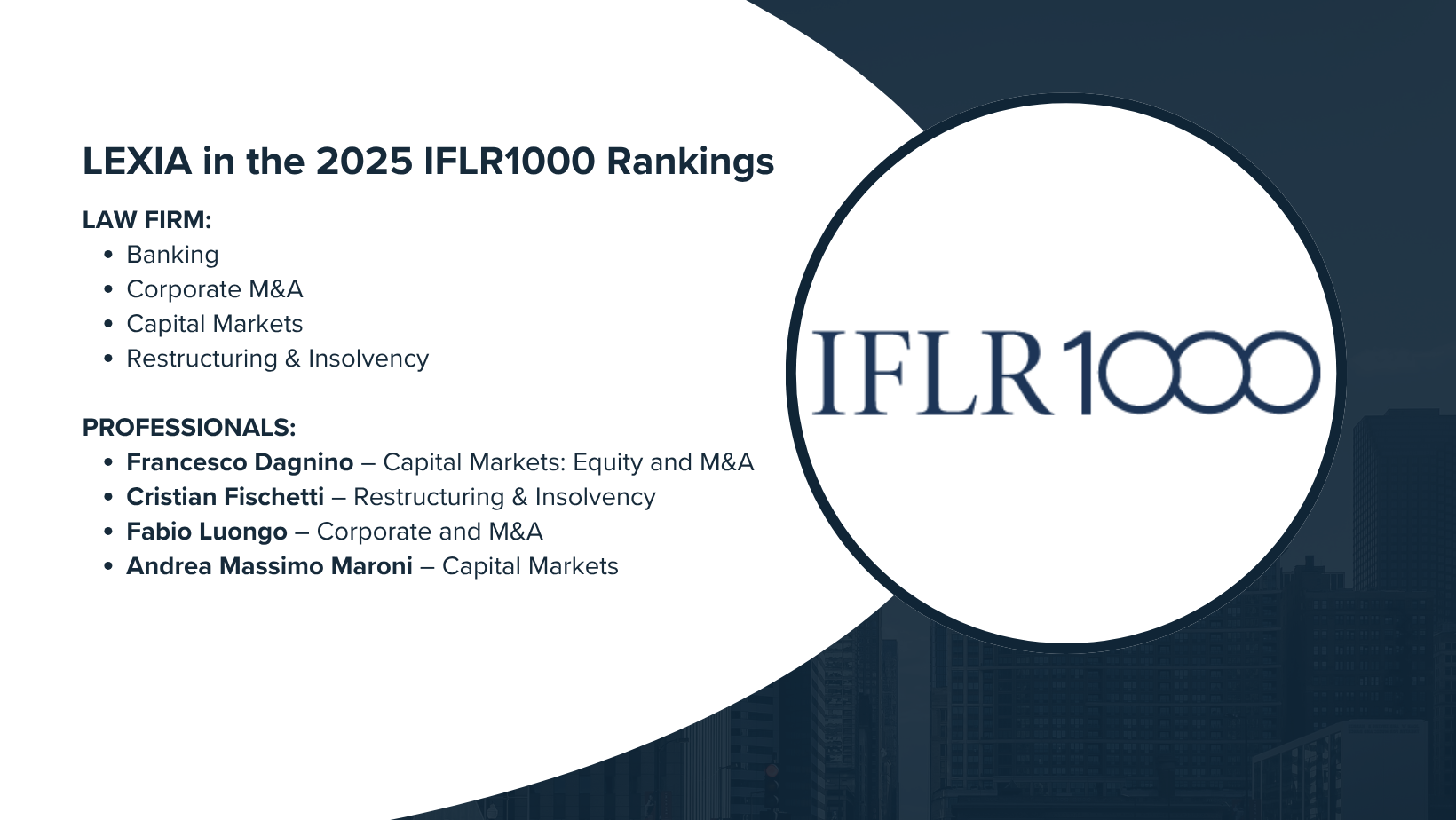April 15, 2025
Personnel administration
Renewal of the Chemical-Pharmaceutical National Collective Agreement: agreement signed for 2025–2028
On April 15, 2025, a draft agreement was signed for the renewal of the National Collective Labor Agreement (CCNL) for the chemical, chemical-pharmaceutical, synthetic fibers, abrasives, lubricants, and LPG sectors.
The new contract will be effective from July 1, 2025, to June 30, 2028.
In terms of remuneration, the agreement provides for an increase in the Total Economic Package (TEC) of €294 at level D1 for the entire contractual period. This amount includes:
€263 increase in contractual minimums and in the Distinctive Remuneration Element (EDR);
amounts already advanced in January 2024 under the agreement on actual inflation;
€6 allocated to the supplementary pension fund Fonchim (starting January 1, 2027);
€2 as a night shift allowance (starting July 1, 2027).
The wage increases will be distributed in five installments starting July 2025.
Significant changes were also introduced on the regulatory side, in line with innovation and sustainability goals: the use of Artificial Intelligence, guidelines on diversity and inclusion, prevention of harassment and violence in the workplace, protection of human dignity, expanded safeguards in case of illness, and new work-life balance measures.
February 26, 2025
Employment contract – Accessory clauses
Non-compete clause upheld even if employer can withdraw with notice
Parma Court
An employee working as a private banker asked the Parma Court to declare null the non-compete clause signed with his former employer. He argued it was invalid due to several reasons, including excessive territorial scope, vague compensation terms, and a clause allowing the company to unilaterally withdraw.
The court rejected the claim, considering the clause valid in all respects. It held that the territorial scope (Emilia-Romagna region and surrounding provinces) was sufficiently narrow and did not prevent the employee from finding other employment. As for the compensation—€10,000 annually—it was deemed fair and determinable, even though it was paid monthly during the employment relationship.
Regarding the withdrawal clause, the judge found it lawful for the bank to withdraw from the agreement, provided it happened while the employment was ongoing and with nine months’ notice during which the employee continued receiving the agreed compensation. This clause did not invalidate the agreement or make it null.
The employee was therefore ordered to cease competitive activity and to pay the penalties provided in the contract.
March 1, 2025
Remote work – “Smart working”
Dismissal invalid if based on employee’s refusal to give up remote work
Ancona Court
An employee was dismissed for refusing to return to on-site work after the company withdrew from the smart working agreement.
The court deemed the dismissal unlawful, as the employment relationship had been established by a settlement agreement that specified the smart working agreement was indefinite, explicitly excluding the employer’s right to withdraw.
As a result, the court ruled the dismissal unjustified and ordered the (small-sized) company to reinstate the employee or, alternatively, to pay compensation equal to six months’ salary, plus interest and revaluation.
March 27, 2025
Working hours, holidays, leave
Managerial employee dismissed for not respecting working hours
Supreme Court, Labor Section
An employee with a “quadro” (managerial) classification was dismissed for unilaterally reducing his daily work time—taking two-hour lunch breaks instead of the required 60 minutes and leaving early. He contested the dismissal, arguing that due to his classification, he was not bound by time constraints.
However, the Supreme Court upheld the dismissal, clarifying that exemption from working time rules only applies to executives or managerial staff with real decision-making autonomy. These criteria were not met in this case, as the employee lacked managerial, representative, or directive powers in a technical sense.
Moreover, the applicable collective agreement expressly subjected “quadro” employees to working hour rules. The employee also admitted to having worked more than required, implicitly recognizing the obligation to follow set hours. The dismissal was therefore confirmed as legitimate.
March 20, 2025
Illness and injury
Preventive suspension during illness: only subsistence allowance is due
Supreme Court, Labor Section
A municipal employee, preventively suspended from duty following pretrial detention for extortion-related charges, was already on sick leave at the time of the suspension. Once personal restrictions were lifted, the suspension continued until the conclusion of the criminal case. The employee requested the salary difference compared to the subsistence allowance he had received during the suspension.
The Naples Court of Appeal rejected the request, stating that the principle of prioritizing the most favorable suspension cause applies only to legally protected events (e.g., illness, maternity, injury), and not to preventive suspension related to criminal liability.
The Supreme Court confirmed the ruling, stating that pretrial detention and the following discretionary suspension stemmed from the employee’s own misconduct, excluding the application of illness-related protections under Article 2110 of the Civil Code. It was therefore lawful to limit economic treatment to only the subsistence allowance, without entitlement to additional wage differences.
March 20, 2025
Individual dismissal
Lawful dismissal sent to lawyer’s PEC if domicile was elected there
Supreme Court, Labor Section
An employee appealed against his dismissal, arguing it was invalid because it was communicated via certified email (PEC) to his lawyer. Both the Trial and Appeal Courts held the dismissal valid, as the employee had formally elected domicile at the lawyer’s office during disciplinary proceedings.
The Supreme Court upheld the ruling, stating that electing domicile at the lawyer’s office implies the employee’s awareness and acceptance of that communication method, based on the trust inherent in the attorney-client relationship. Furthermore, a lawyer’s PEC is a qualified digital domicile registered with the national professional registries (INI-PEC and ReGIndE).
Based on these grounds, the Supreme Court rejected the appeal and confirmed the validity of the dismissal.
November 27, 2024
Dismissal for economic reasons
Unlawful dismissal before contract expiry: company ordered to pay damages
Milan Court
An employee hired under two successive fixed-term contracts was prematurely dismissed due to the company’s loss of a service contract. He had also previously been unlawfully suspended without pay.
He brought the case before the Milan Court, which ruled in his favor. The judge found that early termination of a fixed-term contract is unlawful unless specific conditions are met, which the company failed to prove. Loss of a contract alone does not justify early dismissal.
The company was ordered to pay the employee all accrued entitlements (wages, 14th month bonus, unused vacation, and severance pay), as well as damages equal to the salary he would have earned until the contract’s natural expiration date, with monetary adjustment and legal interest.





